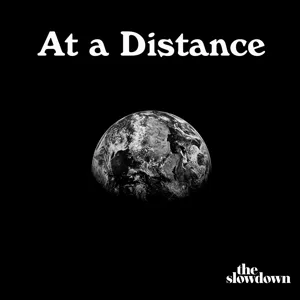Economics for Emancipation with Francisco Pérez

In this episode, I speak with Francisco Pérez about Economics for Emancipation, a free online and in-person course on "capitalism, solidarity, and how we get free.” Francisco is an Assistant Professor of Economics at the University of Utah and senior economist at the Center for Economic Democracy. He’s the former director of the Center for Popular Economics, a nonprofit collective of political economists whose programs and publications demystify the economy and put useful economic tools in the hands of people fighting for social and economic justice.
Follow at Francisco Pérez (@Platanomics) on Instagram and Twitter
Follow @economics4emancipation on Instagram and @econ4freedom on Twitter
Economics for Emancipation is a course created by the Center for Economic Democracy (CED) and the Center for Popular Economics (CPE). The current version of this course is the result of many years of work first led by the CPE – a collective which was founded in 1979 by radical (or heterodox) economists out of the University of Massachusetts Amherst. Since 2019, CPE has partnered with the Center for Economic Democracy (CED) to update and redesign its curriculum into “Economics for Emancipation” (E4E). During the 2020 Covid crisis, CPE and CED worked to adapt E4E for virtual learning geared towards regional cohorts of just transition and social justice organizers, and thus was born this offering.
E4E has been shaped by decades of dialogue between progressive economists, grassroots organizers, and rank & file union workers; we hope it will strengthen your analysis, fuel your spirit and connect you to efforts challenging this economic system at its root.
COCKTAIL PAIRING:
Cuba Libre
Use a Cuban rum like Havana Club if you're able to get it (outside of the US). Probitas is a good substitute that you can find in the US.
1 1/4 oz Light rum
3 oz cola like Coke
1/4 oz lime juice
Add all to Collins glass filled with ice. Garnish with lime wedge.
Cocktails & Capitalism is an anticapitalist labor of love, but we could use your help to make this project sustainable. If you can support with even a dollar a month, that would really help us continue to educate, agitate, and amplify the voices of those who are working to dismantle capitalism and create a better world.
https://www.patreon.com/cocktailsandcapitalism
Follow us on Instagram and Twitter
Some episodes on YouTube. Please like & subscribe

![What is a Solidarity Economy? [The Kola Nut Timebank Story]](https://www.podcastworld.io/podcast-images/the-laura-flanders-show-a1m5wjts.webp)






